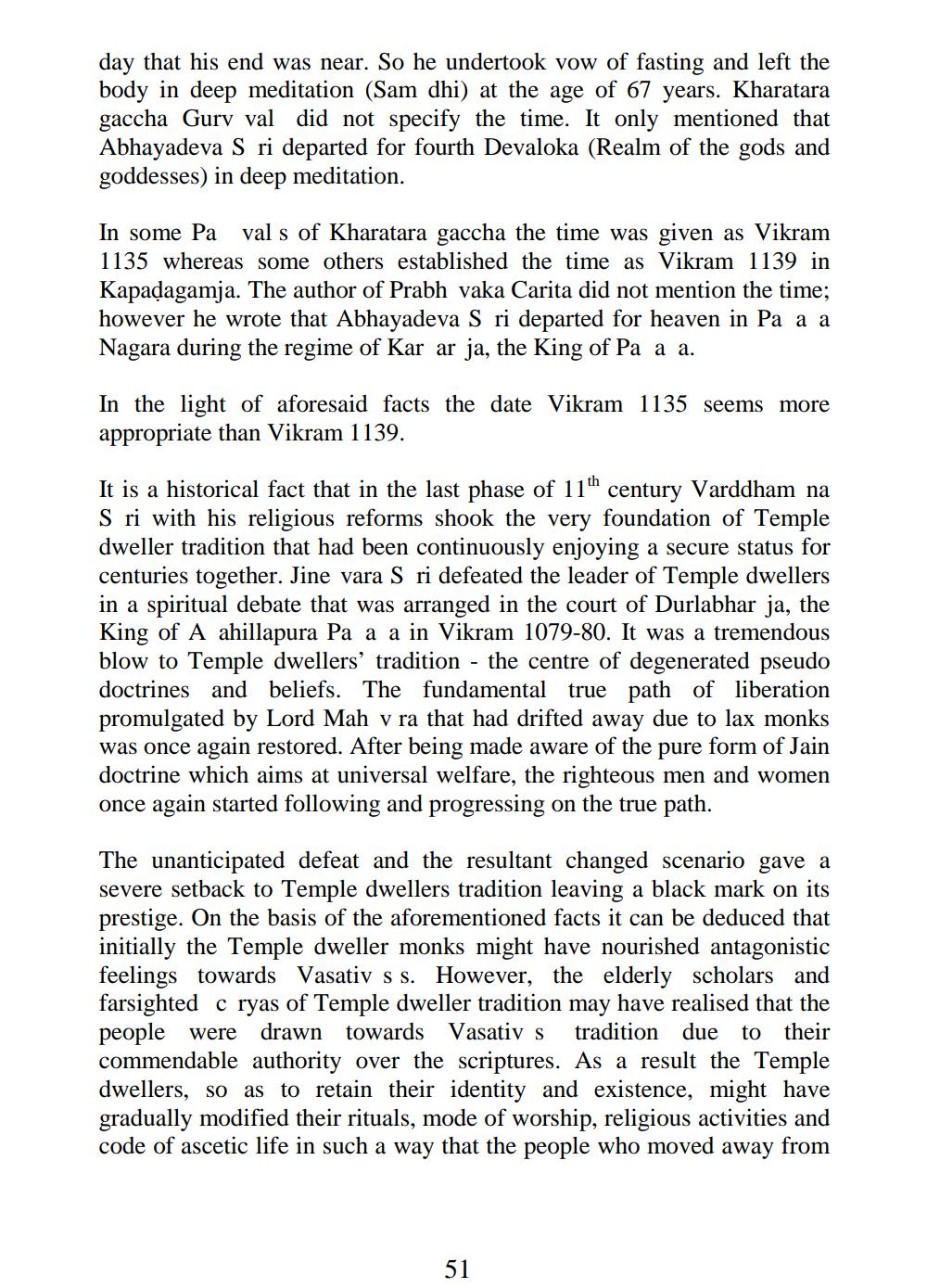________________
day that his end was near. So he undertook vow of fasting and left the body in deep meditation (Sam dhi) at the age of 67 years. Kharatara gaccha Gurv val did not specify the time. It only mentioned that Abhayadeva Sri departed for fourth Devaloka (Realm of the gods and goddesses) in deep meditation.
In some Pa val s of Kharatara gaccha the time was given as Vikram 1135 whereas some others established the time as Vikram 1139 in Kapaḍagamja. The author of Prabh vaka Carita did not mention the time; however he wrote that Abhayadeva S ri departed for heaven in Pa a a Nagara during the regime of Kar ar ja, the King of Pa a a.
In the light of aforesaid facts the date Vikram 1135 seems more appropriate than Vikram 1139.
It is a historical fact that in the last phase of 11th century Varddham na S ri with his religious reforms shook the very foundation of Temple dweller tradition that had been continuously enjoying a secure status for centuries together. Jine vara S ri defeated the leader of Temple dwellers in a spiritual debate that was arranged in the court of Durlabhar ja, the King of A ahillapura Pa a a in Vikram 1079-80. It was a tremendous blow to Temple dwellers' tradition - the centre of degenerated pseudo doctrines and beliefs. The fundamental true path of liberation promulgated by Lord Mah v ra that had drifted away due to lax monks was once again restored. After being made aware of the pure form of Jain doctrine which aims at universal welfare, the righteous men and women once again started following and progressing on the true path.
The unanticipated defeat and the resultant changed scenario gave a severe setback to Temple dwellers tradition leaving a black mark on its prestige. On the basis of the aforementioned facts it can be deduced that initially the Temple dweller monks might have nourished antagonistic feelings towards Vasativ s s. However, the elderly scholars and farsighted c ryas of Temple dweller tradition may have realised that the people were drawn towards Vasativ s tradition due to their commendable authority over the scriptures. As a result the Temple dwellers, so as to retain their identity and existence, might have gradually modified their rituals, mode of worship, religious activities and code of ascetic life in such a way that the people who moved away from
51




